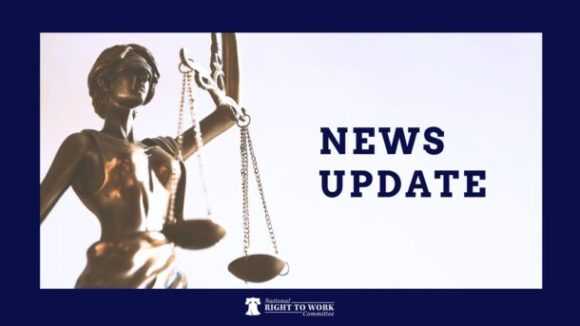Will Team Biden Weaponize Workers’ Pensions?
Big Labor abuse of worker pension and benefit funds as a means of advancing union bosses’ self-aggrandizing policy objectives is a familiar phenomenon.
The Craig Becker nomination to the National Labor Relations Board has a bigger impact on forced unionism than most people realize. The Wall Street Journal is an exception — they know the impact he can have on millions of Americans who do not want to be forced to join a union:
Arlen Specter’s party switch has renewed the debate over the legislative prospects for “card check,” which would effectively eliminate secret ballots in union organizing elections. But Big Labor might not even need card check if Craig Becker has his way.
Mr. Becker is one of two recent National Labor Relations Board appointments by President Obama. The five-member NLRB supervises union elections, investigates labor practices and, most important, issues rulings that interpret the National Labor Relations Act. Mr. Becker, who is currently the associate general counsel at Andy Stern’s Service Employees International Union, is all for giving unions more power over companies in elections. Only he’s not sure he needs to wait for Congress.
Current law on organizing provides advantages and restrictions for both sides. Employers are required to provide union reps with a list of employees and their addresses. Union organizers can visit employees at home, but companies cannot. Organizers can also make promises to employees (such as obtaining raises), which employers cannot. Companies can argue their position at a work site up to 24 hours before an election, but they are barred from coercing employees. Both sides get a seat at the table during NLRB hearings about the scope of an election or complaints about how it was conducted.
Mr. Becker has other ideas. In a 1993 Minnesota Law Review article, written when he was a UCLA professor, he explained that traditional notions of democracy should not apply in union elections. He wrote that employers should be barred from attending NLRB hearings about elections, and from challenging election results even amid evidence of union misconduct. He believes elections should be removed from work sites and held on “neutral grounds,” or via mail ballots. Employers should also be barred from “placing observers at the polls to challenge ballots.”
More extraordinary, Mr. Becker advocated a new “body of campaign rules” that would severely limit the ability of employers to argue against unionization. He argued that any meeting a company holds that involves a “captive audience” ought to be grounds for overturning an election. If a company wants to distribute leaflets that oppose the union, for example, Mr. Becker said it must allow union access to its private property to do the same.
Mr. Becker isn’t clear about which of these rules can be implemented by NLRB fiat, and which would require an act of Congress, but his mindset is clear enough. He’s willing to push NLRB discretion as far as possible to tilt today’s labor rules in favor of easier unionization.
Union leaders argue that they need these rule changes because they are at a disadvantage during elections. But a new report from the Bureau of National Affairs shows unions winning 67% of private ballot representation elections conducted by the NLRB in 2008, the highest rate since BNA began analyzing data in 1984. Meanwhile, 95% of all elections are conducted within 56 days of a union petition filing, with a median of 38 days. This suggests that the real union problem is that most workers don’t want a union election in the first place. Employees are well aware of what has happened to the steel, auto and other heavily unionized industries.
Mr. Becker has a confirmation hearing coming up, and Senators should ask him to explain why someone who wants to rig the rules to favor unionization should sit on a panel that is supposed to enforce fairness in union elections.

Big Labor abuse of worker pension and benefit funds as a means of advancing union bosses’ self-aggrandizing policy objectives is a familiar phenomenon.

What impact does handing a union monopoly power to deal with your employer on matters concerning your pay, benefits, and work rules have on your pay?

The Foundation’s brief before the High Court in Starbucks v. McKinney discusses how NLRB officials use this radical assumption to urge federal courts to hit employers with “10(j) injunctions” that coerce the employers to give into certain union-demanded behavior.